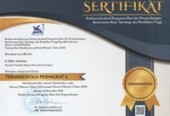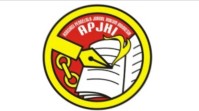Conscientious Avoidance: How Knowledge in the Prosecutorial System Shapes Indonesia’s Transition?
DOI:
https://doi.org/10.28946/slrev.v9i2.969Keywords:
Human Rights Violation, Indonesia, Prosecution, Punishment, Transitional JusticeAbstract
The prevailing view in transitional justice studies suggests that Indonesia is experiencing a political transition without justice. In this article, we attempt to examine the conscientious avoidance of criminal prosecution of past gross human rights violation cases. Through the lens of sociology of punishment, we identify three factors that shape this current penal decision: the knowledge and domination in the penal system, the human rights-focused criminal victim protection and the welfare assistance as a symbolic reparation aimed at neutralising past atrocity crimes. This research employs a narrative approach under the discipline of socio-legal studies. This article contends that the decentralised structure of knowledge within the penal system reflects the dominance and authority in penal decisions, which consist of competing groups and interests. This complexity poses challenges at the institutional level in transforming the political motives behind past atrocities into criminal justice knowledge. The evolving nature of this knowledge within the country’s penal system indicates a future path for the prosecution of past atrocity crimes.Downloads
References
Alhumami, Khunaifi. “Kejaksaan Republik Indonesia: Hukum Di Antara Bayang-Bayang Dua Kaki.” In Bunga Rampai Kejaksaan Republik Indonesia, edited by Siti Aminah Tardi, 203–44. Depok: Badan Penerbit Fakultas Hukum Universitas Indonesia, 2015.
Bedner, Adriaan, and Herlambang Perdana Wiratraman. “The Administrative Courts: The Quest for Consistency.” In The Politics of Courts in Indonesia: The Judicial Landscape and the Work of Dan S Lev, edited by Melissa Crouch, 133–48. Cambridge: Cambridge University Press, 2019.
Braithwaite, John. “Criminology, Peacebuilding and Transitional Justice: Lessons from the Global South.” In Palgrave Handbook of Criminology and the Global South, edited by Kerry Carrington, Russell Hogg, John Scott, and Máximo Sozzo, 971–90. Palgrave Macmillan, 2018. https://doi.org/https://doi.org/10.1007/978-3-319-65021-0.
Citrawan, Harison. “From Grievance to Welfare: Reshaping the Identity of Past Gross Violation of Human Rights Victims in Indonesia.” Jurnal Masyarakat Dan Budaya 20, no. 2 (2018): 237–48. https://doi.org/10.14203/JMB.V20I2.571.
———. “Transitional (in) Justice as Duration.” Journal of Southeast Asian Human Rights 6, no. 1 (2022): 101–30.
Citrawan, Harison, and Sabrina Nadilla. “Hukum, Hak Asasi Manusia, Dan Struktur Pengetahuan: Refleksi Metodologis Tentang Studi Kekerasan Massal.” Jurnal HAM, 2020. https://doi.org/10.30641/ham.2020.11.151-167.
———. “Penal Response and Biopolitics in the Time of the COVID‑19 Pandemic: An Indonesian Experience.” In Law, Humanities and the COVID Crisis, edited by Carl Stychin, 135. London: University of London Press, 2023.
Effendi, Marwan. Kejaksaan RI Posisi Dan Fungsinya Dari Perspektif Hukum. Jakarta: Gramedia Pustaka Utama, 2005.
Effendi, Tolib. “Prinsip Oportunitas Dalam Sistem Peradilan Pidana Indonesia.” In Bunga Rampai Kejaksaan Republik Indonesia, edited by Siti Aminah Tardi, 321–53. Depok: Badan Penerbit Fakultas Hukum Universitas Indonesia, 2015.
Farid, Hilmar, and Rikardo Simarmatra. “The Struggle for Thruth and Justice,” 2004. http://www.ictj.org/sites/default/files/ICTJ-Indonesia-Survey-Initiative-2004-English.pdf.
Feeley, Malcolm M., and Jonathan Simon. “The New Penology: Notes of the Emerging Strategy of Corrections and Its Implications.” Criminology 30, no. 4 (1992): 449–74. https://doi.org/10.4324/9781315095288.
Fenton, Adam J, and David Price. “Breaking ISIS: Indonesia’s Legal Position on the ‘Foreign Terrorist Fighters’ Threat.” Australian Journal of Asian Law 16, no. 1 (2015): 1–18.
Fine, Gary Alan. Difficult Reputations: Collective Memories of the Evil, Inept, and Controversial. Chicago, London: The University of Chicago Press, 2001.
Fletcher, Laurel E, and Harvey M Weinstein. “Context, Timing and the Dynamics of Transitional Justice: A Historical Perspective.” Human Rights Quarterly 163, no. 31 (2009): 165–220.
Foucault, Michel. “Governmentality.” In The Foucault Effect: Studies in Governmentality, edited by Graham Burcell, Colin Gordon, and Peter Miller. Chicago, 1991.
Garland, David. “Concepts of Culture in the Sociology of Punishment.” Theoretical Criminology 10, no. 4 (2006): 419–47. https://doi.org/10.1177/1362480606068873.
———. “Theoretical Advances and Problems in the Sociology of Punishment.” Punishment and Society 20, no. 1 (2018): 8–33. https://doi.org/10.1177/1462474517737274.
Gaus, Nurdiana, Sultan Sultan, and Muhammad Basri. “State Bureaucracy in Indonesia and Its Reforms: An Overview.” International Journal of Public Administration 40, no. 8 (2017): 658–69. https://doi.org/10.1080/01900692.2016.1186179.
Gready, Paul. “Organisational Theories of Change in the Era of Organisational Cosmopolitanism : Lessons from Approach Organisational Theories of Change in the Era of Organisational Cosmopolitanism : Lessons from ActionAid ’ s Human Rights-Based Approach,” no. October 2014 (2013): 37–41. https://doi.org/10.1080/01436597.2013.831535.
Gunawan, Ricky, and Raynov T. Pamintori. “The Death Penalty in Indonesia: Developments and Prospects.” In Crime and Punishment in Indonesia, edited by Tim Lindsey and Helen Pausacker, 276–308. Oxon: Routledge, 2021.
Hadiz, Vedi R. “Decentralization and Democracy in Indonesia: A Critique of Neo-Institutionalist Perspectives.” Development and Change 35, no. 4 (2004): 697–718. https://doi.org/10.1111/j.0012-155X.2004.00376.x.
Harkrisnowo, Harkristuti. “Victims: The Forgotten Stakeholders of the Indonesian Criminal Justice System.” In Support for Victims of Crime in Asia, edited by Wing-Cheong Chan, 262–88. London & New York: Routledge, 2008.
Hearman, Vannessa. “Contesting Victimhood in the Indonesian Anti- Communist Violence and Its Implications for Justice for the Victims of the 1968 South Blitar Trisula Operation in East Java Contesting Victimhood in the Indonesian Anti-Communist Violence and Its Implications ” 3528 (2017). https://doi.org/10.1080/14623528.2017.1393943.
Isra, Saldi, Yuliandri, Feri Amsari, and Hilaire Tegnan. “Obstruction of Justice in the Effort to Eradicate Corruption in Indonesia.” International Journal of Law, Crime and Justice 51 (2017): 72–83. https://doi.org/10.1016/j.ijlcj.2017.07.001.
Itha, Betty. “Sebuah Catatan: Pemberian Bantuan Bagi Korban Pelanggaran HAM Yang Berat.” In Potret Perlindungan Saksi Dan Korban, edited by Nikmatul Hidajati, 99–125. Jakarta: Lembaga Perlindungan Saksi dan Korban, 2017.
Kim, Hunjoon, and Kathryn Sikkink. “Explaining the Deterrence Effect of Human Rights Prosecutions for Transitional Countries.” International Studies Quarterly 54, no. 4 (2010): 939–63. https://doi.org/10.1111/j.1468-2478.2010.00621.x.
Kontras, and ICTJ. Derailed: Transitional Justice in Indonesia Since the Fall of Soeharto, 2011.
Lindsey, Tim, and Helen Pausacker. “Crime and Punishment in Indonesia.” In Crime and Punishment in Indonesia, edited by Tim Lindsey and Helen Pausacker, 1–18. Oxon: Routledge, 2021.
McGregor, Katharine, and Ken Setiawan. “Shifting from International to ‘Indonesian’ Justice Measures: Two Decades of Addressing Past Human Rights Violations.” Journal of Contemporary Asia 49, no. 5 (2019): 837–61. https://doi.org/10.1080/00472336.2019.1584636.
Muladi. “Hukum Pidana Dan Perlindungan Bagi Korban Kejahatan.” Jurnal Perlindungan 4, no. 1 (2014): 3–12.
Nino, Carlos Santiago. Radical Evil on Trial. New Haven, London: Yale University Press, 1996.
Nugraha, Muhamad Yodi. “Optimalisasi Asas Oportunitas Pada Kewenangan Jaksa Guna Meminimalisir Dampak Primum Remedium Dalam Pemidanaan.” Veritas et Justitia 6, no. 1 (2020): 213–36. https://doi.org/10.25123/vej.3882.
Office of the Prosecutor. “Policy Paper on Case Selection and Prioritisation.” International Criminal Court, no. September (2016). https://www.icc-cpi.int/itemsDocuments/20160915_OTP-Policy_Case-Selection_Eng.pdf.
Osiel, Mark J. Mass Atrocity, Collective Memory and the Law. Routledge, 2017.
Pellini, Arnaldo, Agus Pramusinto, and Iskhak Fatonie. “Brokering Knowledge and Policy Analysis Within the Indonesian Public Sector.” In Knowledge, Politics and Policymaking in Indonesia, edited by Arnaldo Pellini, Budiati Prasetiamartati, Kharisma Priyo Nugroho, Elisabeth Jackson, and Fred Carden, 47–64. Singapore: Springer, 2018.
Pengadilan Tata Usaha Negara Jakarta. Sumarsih et.al v. Attorney General of Indonesia (n.d.).
Pohlman, Annie. “A Year of Truth and the Possibilities for Reconciliation in Indonesia.” Genocide Studies and Prevention 10, no. 1 (2016): 60–78. https://doi.org/10.5038/1911-9933.10.1.1323.
Ringnalda, Allard. “Procedural Tradition and the Convergence of Criminal Procedure Systems : The Case of the Investigation and Disclosure of Evidence in Scotland.” The American Journal of Comparative Law 62, no. 4 (2014): 1133–66. https://www.jstor.org/stable/43669495.
Robet, Robertus. Politik Hak Asasi Manusia Dan Transisi Di Indonesia: Sebuah Tinjauan Kritis. Edited by Ronny Agustinus. Lembaga Studi dan Advokasi Masyarakat (ELSAM), 2014.
Rose, Nikolas, Pat O’Malley, and Mariana Valverde. “Governmentality.” Annu. Rev. Law Soc. Sci. 2 (2006): 83–104.
Samuel, Hanneman, and Oki Rahadianto Sutopo. “The Many Faces of Indonesia: Knowledge Production and Power Relations.” Asian Social Science 9, no. 13 (2013): 289–98. https://doi.org/10.5539/ass.v9n13p289.
Sari, Haryanti Puspa, and Kristian Erdianto. “Jaksa Agung: Peristiwa Semanggi I Dan II Bukan Pelanggaran HAM Berat.” Kompas.com, n.d.
Savelsberg, Joachim. “Knowledge, Domination, and Criminal Punishment.” The American Journal of Sociology1 99, no. 4 (1994): 911–43.
———. “Punitive Turn and Justice Cascade: Mutual Inspiration from Punishment and Society and Human Rights Literatures.” Punishment and Society 20, no. 1 (2018): 73–91. https://doi.org/10.1177/1462474517737049.
Savelsberg, Joachim J. “Knowledge, Domination and Criminal Punishment Revisited.” Punishment and Society 1, no. 1 (1999): 45–70.
———. “Underused Potentials for Criminology: Applying the Sociology of Knowledge to Terrorism.” Crime, Law and Social Change 46, no. 1–2 (2006): 35–50. https://doi.org/10.1007/s10611-006-9046-0.
Setiawan, Ken. “The Human Rights Courts: Embedding Impunity.” In The Politics of Court Reform: Judicial Change and Legal Culture in Indonesia, edited by Melissa Crouch, 287–310. Cambridge: Cambridge University Press, 2019.
———. “Ordinary Laws and Extraordinary Crimes: Criminalising Genocide and Crimes against Humanity in the Draft Criminal Code?” In Crime and Punishment in Indonesia, 70–89. Routledge, 2020.
Sikkink, Kathryn. “The Justice Cascade: How Human Rights Prosecutions Are Changing World Politics,” n.d.
Simajuntak, Enrico Parulian. “The Rise and The Fall of the Jurisdiction of Indonesia’s Administrative Courts: Impediments and Prospects.” Indonesia Law Review 10, no. 2 (2020).
Simon, Jonathan. Governing through Crime: How the War on Crime Transformed American Democracy. New York: Oxford University Press, 2007.
———. “Punishment and the Political Technologies of the Body.” In The SAGE Handbook of Punishment and Society, 60–89, 2013. https://doi.org/10.2139/ssrn.2343795.
Sudaryono, Leopold. “Drivers of Prison Overcrowding in Indonesia.” In Crime and Punishment in Indonesia, edited by Tim Lindsey and Helen Pausacker, 179–206. Oxon: Routledge, 2021.
Suh, Jiwon. “The Politics of Transitional Justice in Post-Suharto Indonesia.” The Ohio State University, 2012.
Turner, Mark, Eko Prasojo, and Rudiarto Sumarwono. “The Challenge of Reforming Big Bureaucracy in Indonesia.” Policy Studies 0, no. 0 (2019): 1–19. https://doi.org/10.1080/01442872.2019.1708301.
Utomo, Nurrahman Aji. “Dekonstruksi Kewenangan Investigatif Dalam Pelanggaran Hak Asasi Manusia Yang Berat.” Jurnal Konstitusi 16, no. 4 (2019): 809–33. https://doi.org/10.31078/jk1647.
Wahyoeningrum, Sri Lestari. “Seducing for Truth and Justice :” Journal of Current Southeast Asian Affairs 32, no. 3 (2013): 115–42. https://doi.org/10.1177/186810341303200306.
———. “Seducing for Truth and Justice: Civil Society Initiatives for the 1965 Mass Violence in Indonesia.” Journal of Current Southeast Asian Affairs 32, no. 3 (2013): 115–42. https://doi.org/10.1177/186810341303200306.
———. “Working from the Margins: Initiatives for Truth and Reconciliation for Victims of the 1965 Mass Violence in Solo and Palu.” In The Indonesian Genocide of 1965: Causes, Dynamics and Legacies, edited by Katharine McGregor, Jess Melvin, and Annie Pohlman, 335–56. Palgrave Macmillan, 2018.
Waluyo, Bambang. “Reformasi Pembinaan Sumber Daya Manusia Kejaksaan RI.” In Bunga Rampai Kejaksaan Republik Indonesia, edited by Siti Aminah Tardi, 1–29. Depok: Badan Penerbit Fakultas Hukum Universitas Indonesia, 2015.
Wharton, Robin, and Derek Miller. “New Directions in Law and Narrative.” Law, Culture and the Humanities 15, no. 2 (2019): 294–304.
Whigham, Kerry E. “Remembering to Prevent : The Preventive Capacity of Public Memory” 11, no. 2 (2017): 53–71.
Downloads
Published
Issue
Section
License
Copyright (c) 2025 Sriwijaya Law Review

This work is licensed under a Creative Commons Attribution-ShareAlike 4.0 International License.















